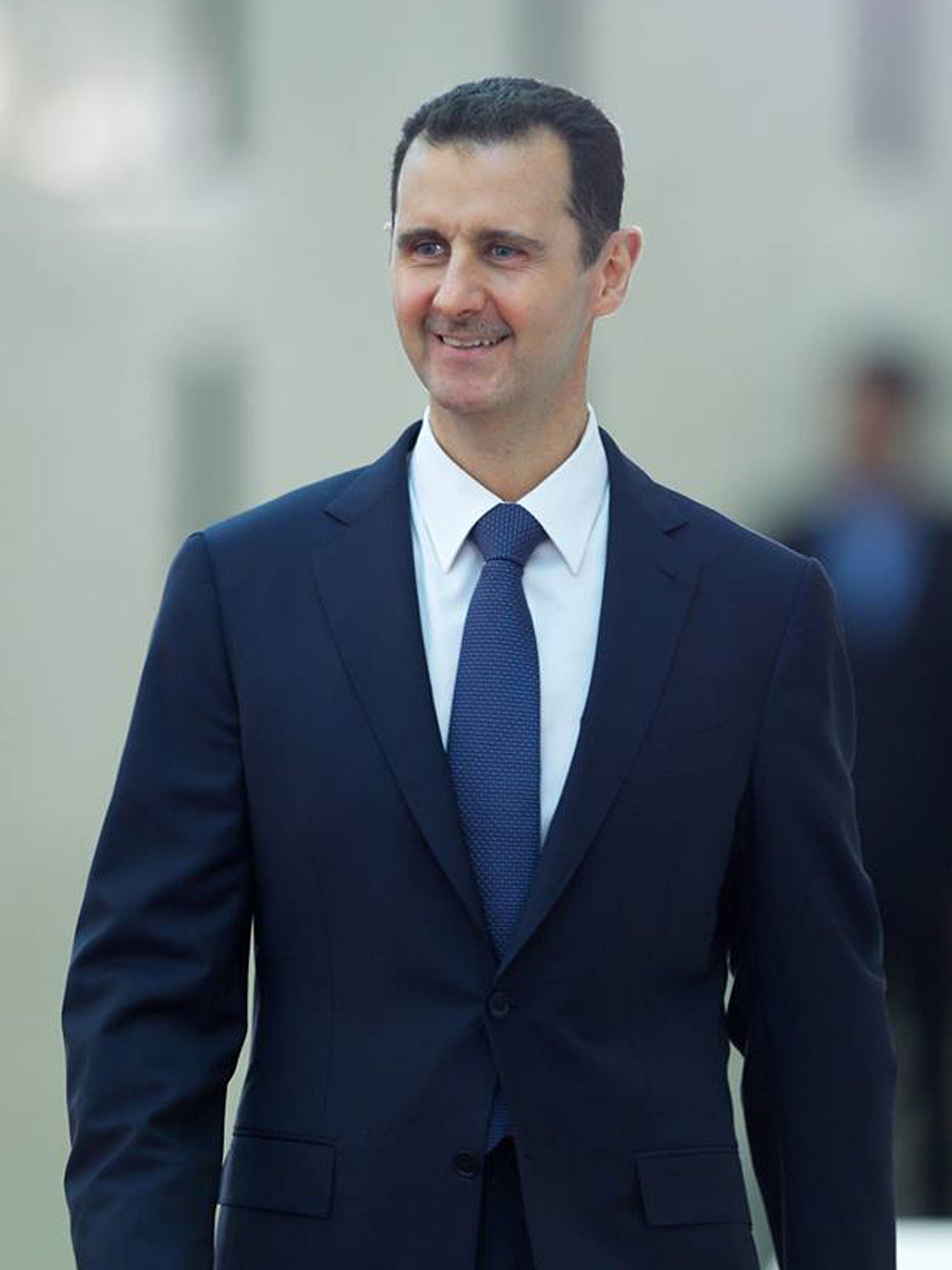Syria crisis: Middle East will 'explode' when Western strikes hit, warns Assad
France claim it has proof regime was behind chemical attack

Your support helps us to tell the story
From reproductive rights to climate change to Big Tech, The Independent is on the ground when the story is developing. Whether it's investigating the financials of Elon Musk's pro-Trump PAC or producing our latest documentary, 'The A Word', which shines a light on the American women fighting for reproductive rights, we know how important it is to parse out the facts from the messaging.
At such a critical moment in US history, we need reporters on the ground. Your donation allows us to keep sending journalists to speak to both sides of the story.
The Independent is trusted by Americans across the entire political spectrum. And unlike many other quality news outlets, we choose not to lock Americans out of our reporting and analysis with paywalls. We believe quality journalism should be available to everyone, paid for by those who can afford it.
Your support makes all the difference.The Syrian president Bashar al-Assad last night warned that the Middle East could “explode” if the United States and France pressed ahead with threatened air strikes on Syria.
In an interview with the French newspaper, Le Figaro, Mr Assad said: “The Middle East is barrel of powder and today the flames are creeping closer. It is not just a question of the Syrian response but what else might happen after the first (Western) air strike… Everyone will lose control of the situation when the powder barrel explodes”.
“Chaos and extremism will proliferate. The rise of a region-wide war is real.”
The comments come as Russia’s defence ministry informed President Vladimir Putin that two “ballistic objects” had been detected by its early warning radar system, according to news agencies in the country.
The missiles were reportedly fired from a point in the centre of the Mediterranean at 10.16am Moscow time (7.16am BST) this morning, “towards the eastern part of the coast”. While the Russian state RIA news agency quoted sources in Damascus as saying the missiles later fell into the sea, it will come as a warning to the Syrian government.
Speaking to Le Figaro’s veteran Middle East correspondent, Georges Malbrunot, Mr Assad denied that his regime was responsible for the poison gas attack on an opposition-held Damascus suburb on 21 August.
“Whoever accuses us must offer proof,” he said. “Neither Mr Obama nor Mr Hollande is capable of doing so, even to their own peoples.”
Mr Assad refused to confirm or deny that his forces had chemical stockpiles. If his regime did have such weapons, he said, it would have been “illogical” to use them in an area “where our forces are also present”.
Asked if he regarded France as the enemy of Syria, because President Francois Hollande had agreed to join the US in punitive air strikes, Mr Assad said: “The French people are not our enemy but… in so far as the French state is hostile to the Syrian people, this state is our enemy.”
The French government last night declassified and published a nine-page intelligence report which said there was clear evidence that the Assad regime carried out the gas attack last month. The report had earlier been shown by Prime Minister Jean-Marc Ayrault to opposition leaders and chairmen of key parliamentary committees before a debate in the National Assembly.
The report says French satellite pictures indicated that the area struck by a “massive and coordinated” attack on 21 August was held by rebel forces. Syrian government forces were holding lines nearby.
The report said the attack was carried out by sophisticated “factory-built” missiles which the rebels did not possess. The Syrian military had bombarded the same area with artillery soon afterwards, the report said, “in an attempt to obliterate traces” of the gas attack.
Damascus has used chemical weapons in at least other three “verified” cases in recent months, the report said, but these had used only “small chemical charges”. The attack on 21 August was “massive” and had the “clear tactical objective to recover lost territory”.
The report was posted on government websites last night in an attempt to influence public and political opinion in France which is running strongly against punitive air strikes. French newspapers said yesterday that President Hollande had been “trapped” and “left dangling” by President Barack Obama’s decision on Saturday to seek Congressional approval for strikes on Syria.
As America’s only declared partner in such strikes, the French president now finds himself having to wait for a Congressional decision while refusing to allow the French parliament to vote on France’s role. Tomorrow’s debate in Paris will not lead to a vote because the French constitution gives the president the prerogative to decide on military actions of less than four months.
Join our commenting forum
Join thought-provoking conversations, follow other Independent readers and see their replies
Comments